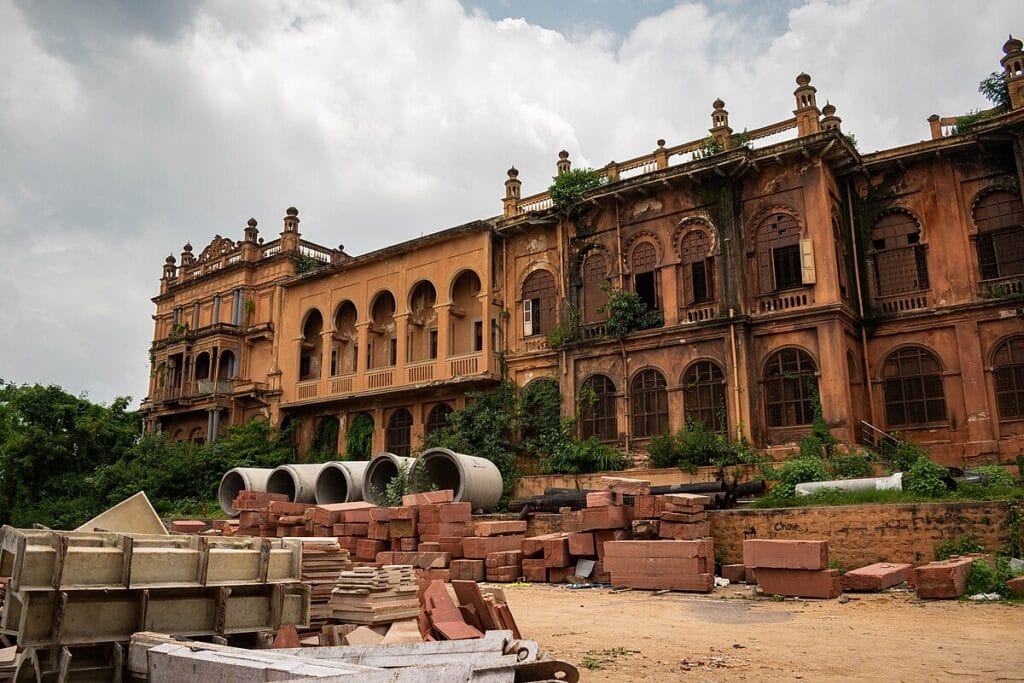As I write this, Hyderabad is gearing up to vote in the Telangana state assembly polls scheduled for November 30th. Political rhetoric and slugfests have both been at a peak over the last few months leading up to these elections. But in the usual noise, what is often lost are the real needs of the city and its people.
What Hyderabad needs most urgently is good governance. There is a vacuum of participatory governance, ethical governance, transparent governance, and accountable governance. The city faces several social, economic, environmental and other challenges, the resolution for which can come about only through responsible governance; governance that is defined by characteristics of thoughtfulness and mutual engagement through dialogue.
As the people across the state vote in the new government, here are a few things that any citizen of Hyderabad will most definitely look forward to.
Ensure participatory and ethical governance
The Constitution of India envisaged self governance, in the form of local governance that was enabled by the 73rd and 74th constitutional amendments. But this approach does not seem to resonate well with the Government of Telangana, as can be gauged by the lack of a single Ward Committee in the 150 wards of the Greater Hyderabad Municipal Corporations. There has been no progress on the front even after GHMC ward elections were held twice in 2016 and 2020.
In fact, when activists were demanding the constitution of ward committees, the Minister for Municipal Administration, in the 9th year of the current government’s tenure, preferred to set up brick-and-mortar ward offices, instead of facilitating people’s participation as mandated by the Telangana Municipal laws in tune with the Constitution.
Functionality of local governance ensures that the real local issues — ranging from streets, tree-felling, sewage, garbage to education, jobs, identity cards, hospitals, water bodies, etc. – may be correctly identified. This, in turn, helps to determine where funds are required and how they can be spent judiciously.
Read more: More buses, better footpaths and three more wishes from a Hyderabad resident
But while the Telangana Municipal Law was passed in 2019 with Rules framed in 2020, that mandated people’s participation through Ward Committees, the formation of Ward Committees was never on the agenda of the Ministry of Municipal Administration.
The key issue of budgeting as per local requirements and demands can be enabled through ward committees. This can be attained through a bottom-up approach as envisaged in our Constitution, rather than the top-down approach being adopted now by the GHMC. Residents are unaware of the road-laying that goes on in front of their houses. Even before locals come to know, perfectly good roads are re-laid. Elsewhere, roads may become pot-holed but no action is taken.
A case in point are the rumble strips that sprung up across the city roads early this year, with no study or local inputs bearing out the move. Complaints from citizens about the damage to riders and vehicles piled up, but there was no one to listen. People understand that it is corporate companies with political connections who procure such contracts, and parties gain at the cost of citizen wellbeing and public exchequer.
Each Assembly constituency has around 7 wards in its jurisdiction. If ward committees are not formed and meetings not held, MLAs have every responsibility and right to question the Minister on this gap in governance.
Implement existing policies more strictly
There is little monitoring by the state on how policies critical to the well being of the city are being implemented in practice. Take waste management, for example.
Early in 2016, GHMC Hyderabad distributed two bins just before the ward elections. The distribution was organised with much pomp, as in a mela. But it was designed to fail, as there was no effective communication on why the two bins were important and what the scheme was meant to achieve. The progress of the scheme was never reviewed, nor was there any push or exhortation for citizens to use the two bins to segregate at source.
Solid Waste Management Rules, if implemented properly, could have prevented the hellish situation generated at Jawaharnagar dumpyard, where unsegregated municipal garbage of around 7000 tonnes per day reaches the Ramky plant. The segregated organic waste that could have been composted and recycled in a decentralised manner at ward-wise collection centres, is now being transported outside municipal limits against ethics and against law.
The same policy of handling waste at source applies to sewage waste too.
Building Rules, issued by the Department of Municipal Administration & Urban Development under the Minister of Municipal Administration, are not being implemented either. These rules mandate local handling of sewage and harvesting of rainwater, but the state has been a mute spectator to inaction and negligence on that front. Rainwater harvesting and restoration of wells should be taken up on war footing as a matter of policy, and not just as a hobby of some NGOs.
Rethink Floor Space Index policy; redefine development
Government land within the Hyderabad Municipal area and surrounding areas have been auctioned and purchased by corporates. These lands, which could and should have been used for public welfare projects such as government educational institutions and citizen empowerment centres, have been handed over to energy-guzzling malls, to raise revenue for the government.
The vertical expansion of real estate with unlimited Floor Space Index has taken a toll on the natural resources of the city. The Government Order Ms 111 dated 8.3.1996 that had been upheld by the Supreme Court of India in 2000, now stands repealed as of 18 May 2023.
What the repeal of the GO means is that the catchment area of the century-old Osman Sagar and Himayath Sagar reservoirs is now open to unlimited vertical expansion, just as in other municipal areas. These reservoirs were originally constructed as flood control mechanisms and served the drinking water needs of the city. They also served to recharge ground aquifers and catered to the huge biodiversity in the region. Construction and high rises being restricted here, this had been a healthy lung space for Hyderabad city, but the repeal has made it a victim of the state’s flawed development policy.

Media reports mention plans for 22 STPs and a ‘Green City’ in the catchment area of the twin reservoirs. The People’s Scientific Committee Report stated that removing the shield of protection afforded by GO111 will spell doom for the city of Hyderabad and around.
The new government and local MLAs should take care to ensure that the GO 111 ban is implemented in its letter and spirit. In fact, it should go a step further to bring in a law on conservation and organic agriculture, horticulture and floriculture spanning the entire 1,32,000 acres of 84 villages in the area.
Read more: When yellow trees disappeared overnight in the ‘green city’ of Hyderabad
Add accountability to governance
Heritage structures in the city suffer from deliberate lack of maintenance. The Government of Telangana’s attempts to de-notify more than 160 heritage structures were curtailed by High Court Orders, in spite of which the Heritage Conservation Committee mandated by the HMDA Act has not been constituted in the past nine years.
The High Court has had to intervene multiple times ordering the state to operationalise other critical institutions such as the Information Commission, Human Rights Commission, Lokayukta, Minorities Commission, Appellate Authority, WALTA Authorities, etc. few of which are lying totally dysfunctional now.
In August 2014, there was a comprehensive survey census of Telangana conducted by the government. Citizens, however, have no intimation of the outcome or how the survey was used. People had travelled from across India to their home state Telangana in order to be included in the three-day survey census, so that they would not be ‘left out’.

Representational photo: Irrum Manzil Palace. Pic: Wikimedia Commons/CC BY-SA 4.0
One only hopes that the new government will be more active and transparent on all the above matters.
Save the city!
It has been enshrined in our Constitution both in the Fundamental Duties of citizens as well as in the Directive Principles of State Policy that it is not just important to conserve the environment but it is imperative to improve it. This just does not seem to resonate with the government of Telangana, given the predatory action against the natural resources of the city.
Active dumping of reservoirs, river, lakes, channels, felling of trees, razing of rocks, encroachments of open spaces, has become a daily norm under the pretext of providing ‘Ease of Business’ and ‘Development’.
Read more: Gopanpally Tank in Hyderabad crying for help
People of Hyderabad en-masse feel that the city needs a government that will ensure that it does not become another New Delhi, where daily living itself has become a challenge because of grave concerns over air, water, commute and the like. Myopic ‘development’, a charade in the interest of corporate contracts alone, has already damaged Hyderabad’s ecology considerably. We need a government that will devise policy, legislate and take definite steps to reverse the damage done.